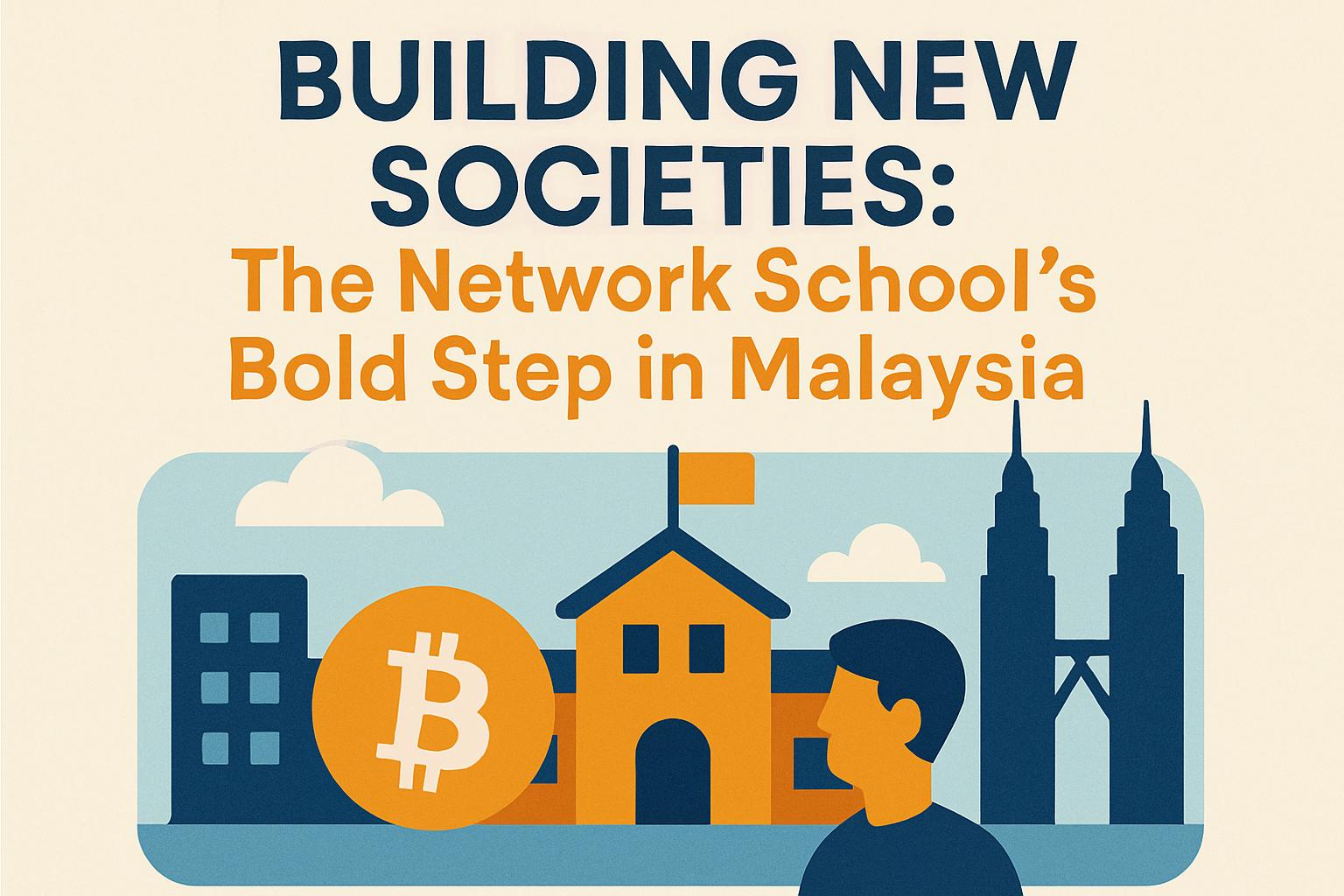In the once-abandoned and futuristic Forest City of Malaysia, an intriguing experiment in governance and technology is quietly unfolding. Balaji Srinivasan, the former CTO of Coinbase, has transformed this massive development into the ‘Network School,’ a living lab that tests the viability of a decentralized society driven by cryptocurrency and a shared belief in technological advancement.
From Ghost Town to Tech Haven
Originally a sprawling $100 billion venture by a Chinese developer, Forest City fell victim to geopolitical tensions and a lack of demand, quickly becoming a symbol of miscalculated ambition. But Balaji saw opportunity in redundancy. Today, Forest City hosts nearly 400 entrepreneurs and tech enthusiasts, all drawn to the Network School’s promise of a novel societal model.
These pioneers, investing $1,500 per month, receive more than just a curriculum. They immerse themselves in programming, decentralized governance studies, fitness, and even a Bryon Johnson-inspired diet, forming the backbone of an experiment that tests the boundaries of nationhood and belief.
Choosing Nations: The Balaji Vision
Since outlining his vision in ‘The Network State’ over a decade ago, Balaji has advocated for the decoupling from traditional state systems, using crypto and blockchain to fabricate new sovereign entities. Echoing sentiments he shared at the Bitcoin Asia Summit in Hong Kong, he envisions a world where one can choose their nation as readily as selecting a university at 18, a revolution beginning in startup societies.
Network School offers a rich blend of theory and practice. Students engage in morning sprints focusing on product development and coding, followed by discussions on historical governance models, such as Japan’s Meiji Restoration and Singapore’s developmental policies. This isn’t just education; it’s the scaffolding for participants to potentially win grants through hackathons to build their utopian communities.
Navigating Skepticism and Historical Perspective
Mainstream media remains skeptical, depicting these techno-dreamers as escapists indulging in luxury lifestyles while concocting nation-building blueprints. Reports draw parallels with failed ventures like Peter Thiel’s Seasteading or Honduras’s Prospera, suggesting such experiments are fantasies detached from reality.
Haseeb Qureshi of Dragonfly Capital counters this skepticism, arguing that history itself is a tapestry of ambitious endeavors once deemed impractical. He points out that dismissing new political experiments means standing on the wrong side of history, akin to the sentiment faced by early American settlers and explorers.
Global Nodes and the Future of Governance
Balaji’s ambitions extend beyond Forest City. He envisions constructing a permanent campus in Malaysia to house thousands and exporting this model globally to create nodes in cities like Miami, Dubai, and Tokyo. His promise to fund student ventures worldwide underscores the movement to ignite a global ‘Startup Society.’
This initiative isn’t merely about forming universally recognized decentralized nations. Instead, it reignites the discourse on whether governance can be innovated through digital technology. In an era where traditional governments wade through deficits and inefficiencies, these ‘tech utopias’ might just be the blueprint for future governance.

![[News] Bitcoin at a Turning Point? 10x Research Signals a Bullish Macro Shift Ahead](https://cryptoexplores.com/wp-content/uploads/2025/06/new20250616.jpg)
![[News] Binance Lists $HOME, the Gas-Free, Bridge-Free All-in-One DeFi App](https://cryptoexplores.com/wp-content/uploads/2025/06/news20250617.jpg)